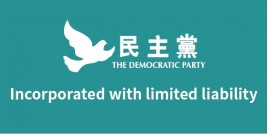香港民間組織代表團在聯合國人權事務委員會審議香港就《公民和政治權利公約》提交的第二次報告前,會晤委員會成員。各委員會成員其後在審議會上向由民政事務局常任秘書長林鄭月娥率領的香港政府代表團表示,關注本港多項人權事務未能符合部份公約的條文規定。
審議會在今午(三月二十一日)開始,但因香港政府直至上周五才回應去年十二月聯合國提出的關注問題,且未提供不同語言譯本,委員會成員沒充份時間熟讀香港政府的回應。委員會主席對此提出批評。會上其他委員則感謝民間組織的簡介和輔助資料加深他們對本港人權狀況的了解。 會上多名委員會成員表達對人大釋法的關注。愛爾蘭代表關心釋法將成本港施法制度內的常用手段。他質疑二零零四及二零零五年人大常委會解釋基本法如何能符合 公約規定、特區政府曾否就釋法問題向人大常委提供人權觀點、是否有機制審核對人權的影響。
此外,有見於釋法對香港社會的衝擊,他認為釋法前應作出公眾諮 詢。他同時亦關注到是否有任何機制確保人大常委會不會採取過份粗暴的處理手法。 委員亦對改變立法會議席和行政長官的選舉方法表示關注,委員質詢二零零四年四月二十六日的釋法是否符合公約第二十五條,以及基本法第四十五條和六十八條的 規定,認為該次釋法不但沒有向全民普選邁進,不幸地更是民主後退。英國的代表則為英國未能在回歸前在港推行民主選舉制度致歉,同時希望了解為甚麼以香港這 樣一個先進都市、良好的管治、高教育水平的市民,而仍然未適宜推行民主制度。
會上亦對特區政府就基本法第23條立法沒有任何計劃表示關注,一名委員要求政府當局澄清,政府撤回基本法第二十三條的立法草案,是否如曾蔭權於二零零五年所言,是因草案過度寬鬆。 其他委員會成員對在內地遭扣留人士的通報機制表示關注,指出由於缺乏完整的保障,締約國有責任根據公約,由香港特區一方提供支援。 會上亦呼籲特區政府根據近期法庭就「公共秩序」一詞作出的裁決,而檢討公安條例。集體談判亦是人權事務委員會的關注議題之一,其中一名委員更指民主參與始於「一般勞工的工作場所」- 意即由下而上的參與。 民間組織代表團認為委員的意見相當中肯,可見委員已充份掌握香港的情況。特區政府則重申政府會認真對待委員會的批評,以法輪功為例,他們五月租用康樂及文化事務署設施的申請已獲批准,而廣受關注的種族歧視條例草案亦將於二零零六年七月提交立法會。 我們相信香港政府代表團今天晚上將徹夜苦幹,在明天最後一節的審議會上詳盡地回應人權委員會所提出的問題。審議會議明天將繼續。 民間組織代表團成員包括: 民主黨副主席 何俊仁 前線召集人 劉慧卿 香港人權監察 羅沃啟 香港記者協會幹事盧敬華 民主動力召集人蔡耀昌 香港電台節目製作人員工會主席 麥麗貞
UN Human Rights Committee raises concern over HK’s human rights issues A group of Ngos from Hong Kong met with Committee members from the United Nations Human Rights Committee who later expressed their concerns to the Hong Kong Government representatives led by Permanent Secretary for Home Affairs Bureau Carrie Lam, over the status of various rights issues which they felt did not comply with certain articles of the International Covenant on Civil and Political Rights at the UN hearing on the 2nd report on the Hong Kong SAR of the PRC in light of the ICCPR.
The UN hearing started off in the afternoon (21st March 2006) with the Chairperson of the Committee criticizing the Hong Kong government for responding to the UN Committee’s list of questions from December 2005 just a few days before the hearing and not in all official languages, leaving Committee members with little or no time to fully digest the government’s response. Others thanked ngos for their briefings and supplementary information which assisted in their better understanding of the situation. Several members were concerned over the interpretation of the Basic Law. The Irish representative (Mr. O’Flaherty) was concerned that the interpretation of the Basic Law may become a standard device used in the legal system of Hong Kong. He questioned how the NPCSC interpretation was in compliance with the ICCPR, whether any human rights advice had been given to the NPCSC, whether there had been any human rights vetting for interpretation, and given the extraordinary impact interpretation has on the public, whether public consultation had been conducted. He was also concerned as to whether there was any protection against the Standing Committee from operating in an ultra vires manner. Concerns were also raised over the electoral changes made in the Legislative Council and the Chief Executive elections. There were expressions of doubt as to whether the interpretation of the Basic Law on April 26th, 2004 were compatible with Article 25 of the ICCPR as well as Article 45 and 68 of the Basic Law. He described this as an unfortunate movement backwards and not forwards to the universal suffrage goal. The UK representative (Sir Nigel Rodley), having apologized for the failure to introduce a democratic system in place before the handover, and expressed interest in knowing why Hong Kong as such a sophisticated city, which is so well governed and with an educated population would be assumed not to be suitable for democracy.
The lack of plans to legislate on the Article 23 issue was raised. However one of the delegates asked the Hong Kong government to clarify whether the reason for the withdrawal of the Article 23 bill was that it was too lenient as suggested by Donald Tsang in June 2005. Other Committee members, raised concerns over the notification system regarding Hong Kong people detained on the Mainland, and pointed out that as there was no consular protection available, the State Party should have a positive duty in accordance with the ICCPR to provide assistance from the Hong Kong side. There was a call for the Public Order Ordinance to be reviewed in light of a recent court decision resulting in the concept of “ordre public” in being struck down. Collective bargaining was another area of interest, with one member pointing out that democratic participation started up from the “shop floor”. The NGOs took the view that the members’ questions were pertinent and reflected that they were well informed on the situation of Hong Kong. The Hong Kong government was keen to reiterate that it did take the Committee’s comments seriously stating that on issues relating to the Falungong, their application to use an LCSD facility in May had just been granted, the much discussed racial discrimination bill will be introduced before Legco in July 2006. We expect that the Hong Kong delegation will have to “burn the midnight oil” in order to give an elaborate and well considered response to the questions raised. The Hong Kong government will be responding to these concerns tomorrow morning. The hearing continues.
Delegation of NGOs include: The Democratic Party Deputy Chairperson Albert Ho The Frontier Convener Emily Lau Hong Kong Human Rights Monitor Director Law Yuk Kai Hong Kong Journalists Association Secretary Lo King Wah Power for Democracy Convener Richard Tsoi RTHK Programme Staff Union Chairperson Janet Mak




